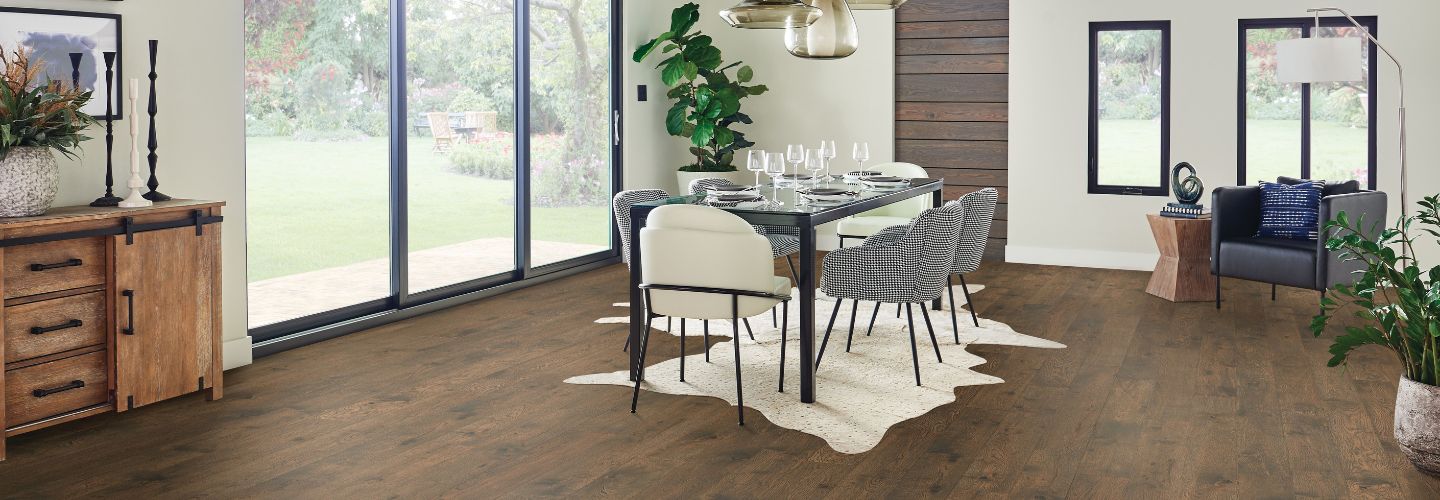Product & Trends The Ultimate Guide to Engineered Hardwood Flooring: Style, Durability, and Sustainability
Sep 18, 2024When selecting flooring for a residential new build or remodel, engineered hardwood has quickly become a favorite among both homeowners and designers. Blending the natural beauty of hardwood with the durability and stability of modern engineering creates a wood flooring product that is an excellent choice for both style and practicality. Whether you're considering engineered hardwood for a living room, bedroom, kitchen, or bath, here's everything you need to know.
What is Engineered Hardwood?
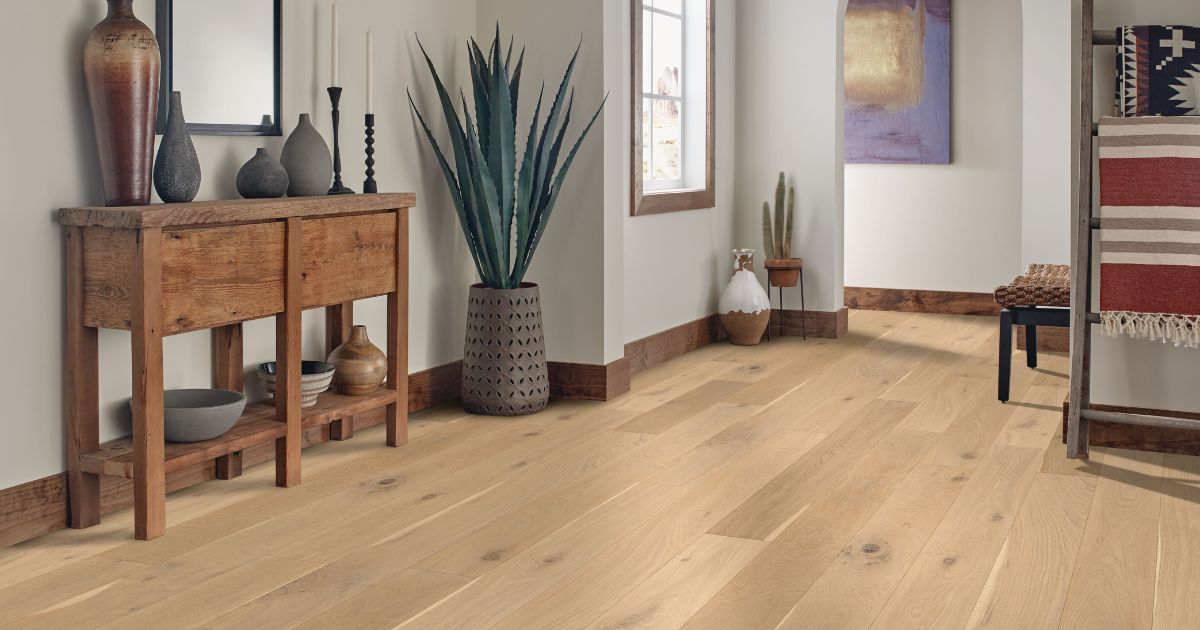.jpg?lang=en-US)
Goodman engineered wood flooring
Engineered hardwood is a type of flooring that consists of multiple layers. The top layer, or veneer, is made of real hardwood, giving it the authentic look and feel of traditional solid hardwood floors. There are several layers of plywood or high-density fiberboard (HDF) beneath the veneer layer, which make the flooring more stable and less prone to warping or shifting due to moisture and temperature changes.
Why Choose Engineered Hardwood Flooring?
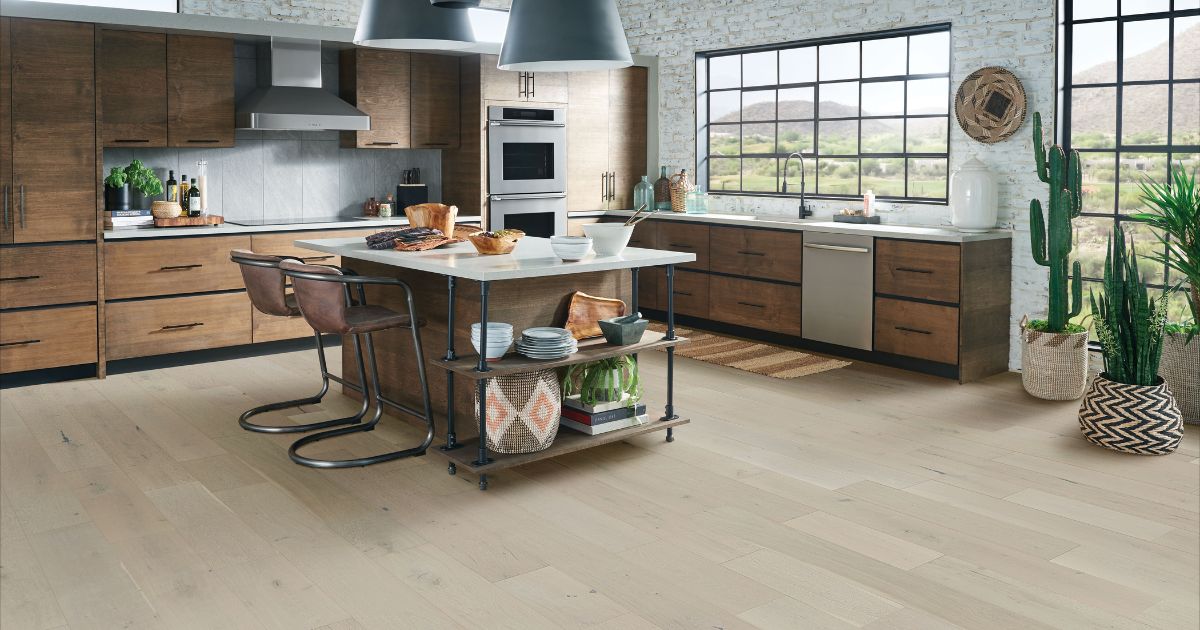.jpg?lang=en-US) Glenmora engineered hardwood
Glenmora engineered hardwood
Durability
Engineered hardwood is still real and natural wood, but its structure offers more stability and resistance against moisture. This means you can still achieve the authentic wood flooring of your dreams in areas of the house (like basements, kitchens, and even bathrooms) where solid hardwood might not be the best option.
Style Versatility
Since the top layer is real wood, engineered hardwood offers the same variety of styles, finishes, and species as solid hardwood. You can find it in oak, maple, hickory, walnut, and more, with options for both smooth and textured finishes.
Ease of Installation
Every plank in our engineered wood collections features a tongue-and-groove system that can be floated, stapled with glue, or glued for a quick and efficient installation, making it more flexible for DIY projects or professional installations.
Sustainability
Engineered hardwood uses less solid wood than traditional hardwood floors, so fewer trees are harvested. The layers beneath the hardwood veneer are made from fast-growing, renewable materials, contributing to its eco-friendliness.
Engineered Hardwood vs. Solid Hardwood
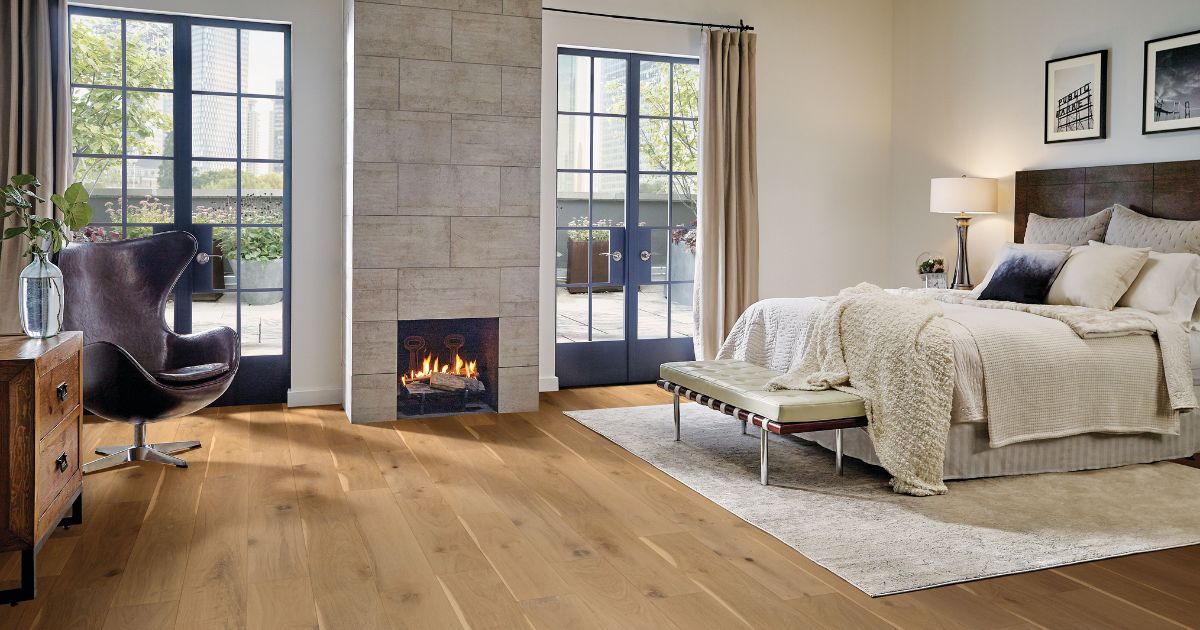.jpg?lang=en-US) Bacova engineered wood floor
Bacova engineered wood floor
While engineered hardwood and solid hardwood both provide the warmth and beauty of wood, there are distinct differences between the two:
Stability
Engineered hardwood flooring is more stable and less likely to warp or expand in high humidity. It is suitable for below-grade installations, such as basements, where solid hardwood might not perform as well due to its resistance to moisture and temperature changes.
Thickness and Refinishing
Solid hardwood can be sanded and refinished multiple times and typically lasts for decades. Engineered hardwood planks, depending on the thickness of the veneer, can usually be refinished 1-3 times and the life span is typically 20 to 40 years. If longevity and refinishing are major concerns, opt for a thicker veneer.
Cost
Engineered hardwood is often more cost-effective than solid hardwood. Depending on the wood, thickness, and quality, engineered wood is often the less expensive material. Additionally, engineered wood flooring generally has a simpler installation process than hardwood flooring, easier and quicker for DIY enthusiasts or professional installers, leading to lower installation costs.
Maintenance and Care of Engineered Wood Floors
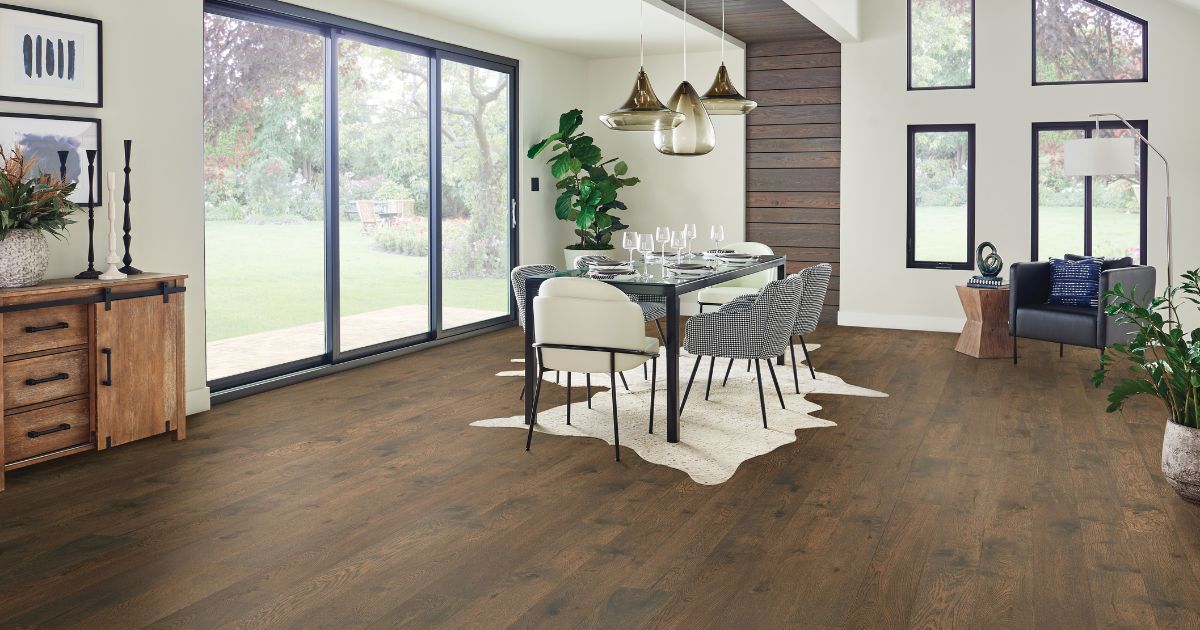.jpg) Goodman engineered hardwood
Goodman engineered hardwood
Maintaining engineered hardwood is similar to caring for traditional hardwood floors. Here are some key tips:
Regular Cleaning
Sweep or vacuum regularly to remove dirt and debris that can scratch the surface. Use a damp (not wet) mop with a wood-safe cleaner.
Avoid Excess Moisture
While engineered hardwood is more resistant to moisture than solid hardwood, it's still important to avoid standing water or excessive spills. Wipe up any spills immediately and use mats in areas prone to water exposure, like kitchens or entryways.
Protect from Scratches
Use felt pads under furniture legs, and avoid dragging heavy items across the floor. Area rugs can also help protect high-traffic areas.
Environmental Impact Of Engineered Hardwood Floors
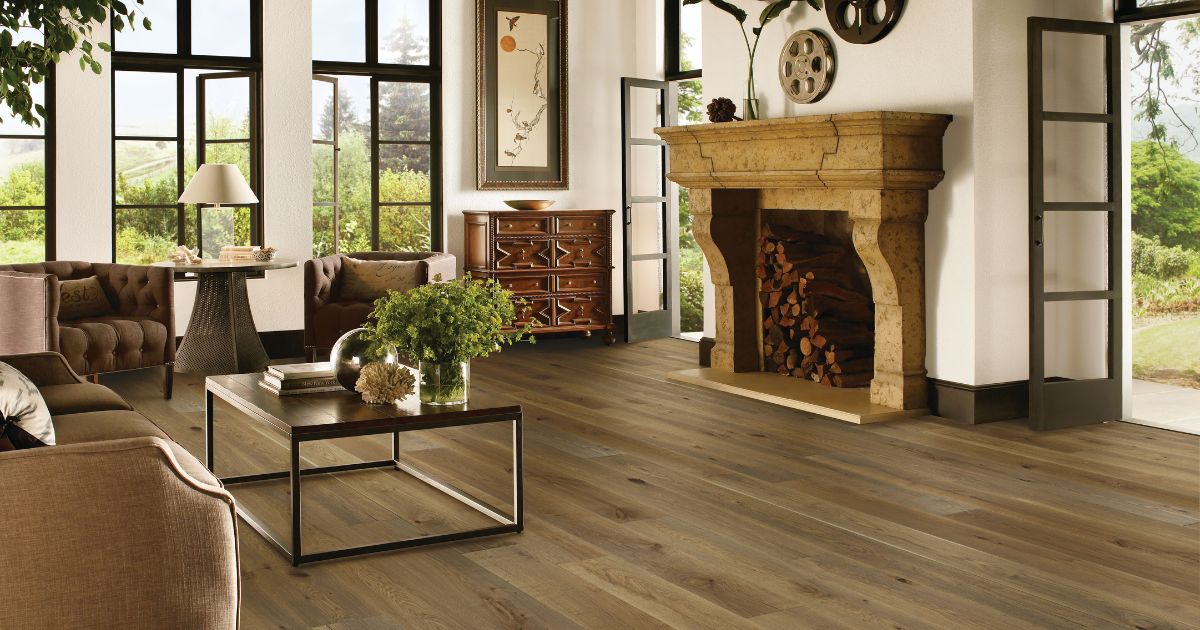 Glenmora engineered wood collection
Glenmora engineered wood collection
One of the key advantages of engineered hardwood is its smaller environmental footprint compared to solid hardwood. The core layers are often made from fast-growing trees or reclaimed wood, reducing the need for slow-growing hardwoods. Many manufacturers also use eco-friendly adhesives and finishes, making engineered hardwood an attractive option for those seeking sustainable building materials.
Additionally, because engineered hardwood can be installed in areas where solid hardwood isn’t suitable, it helps reduce the demand for exotic hardwoods, contributing to more responsible forestry practices.
Engineered Hardwood Combines the Best of Both Worlds
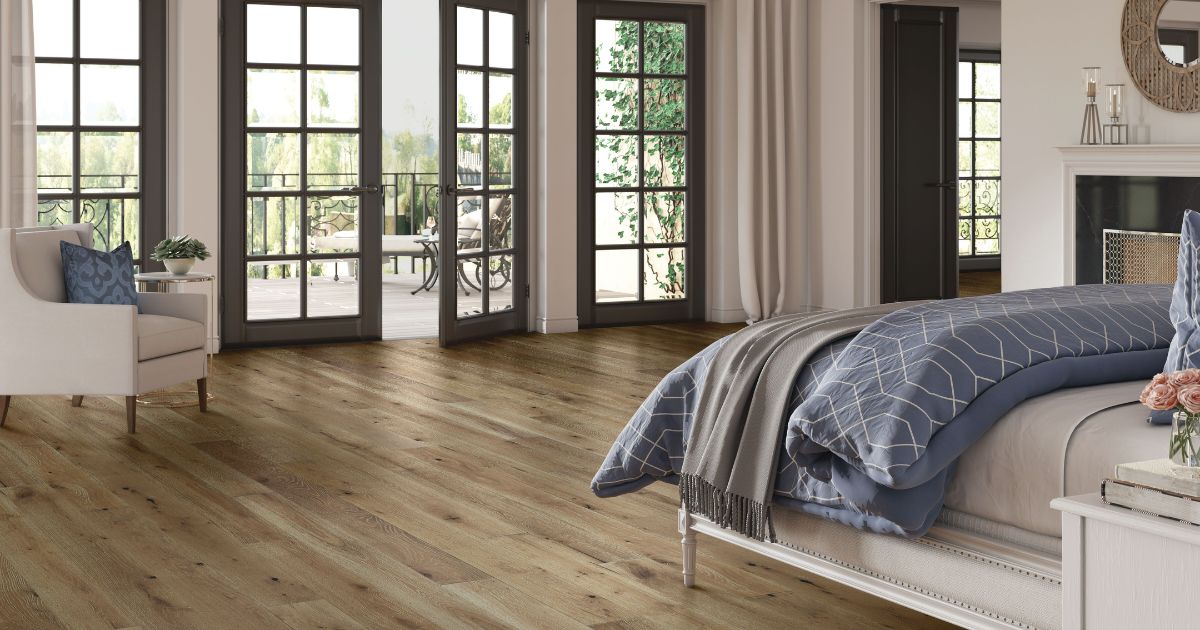.jpg?lang=en-US) Bacova engineered hardwood floor
Bacova engineered hardwood floor
The beauty and authenticity of hardwood with enhanced durability and versatility. It’s an excellent choice for homeowners who want a long-lasting, stylish, and environmentally friendly flooring option. Whether you're renovating a single room or an entire home, engineered hardwood offers a solution that balances aesthetics, practicality, and sustainability
Check out Crossville Studios’ gorgeous engineered hardwood flooring collections.
Bacova™ Engineered Hardwood
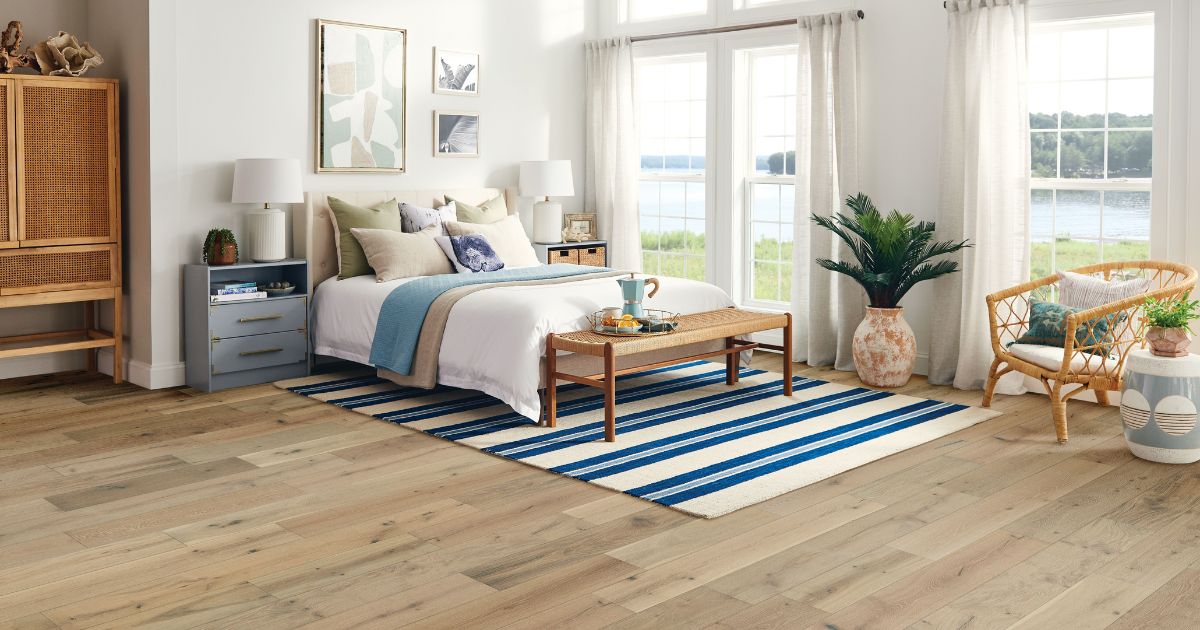 Explore the Bocova engineered wood collection.
Explore the Bocova engineered wood collection.
Glenmora™ Engineered Hardwood
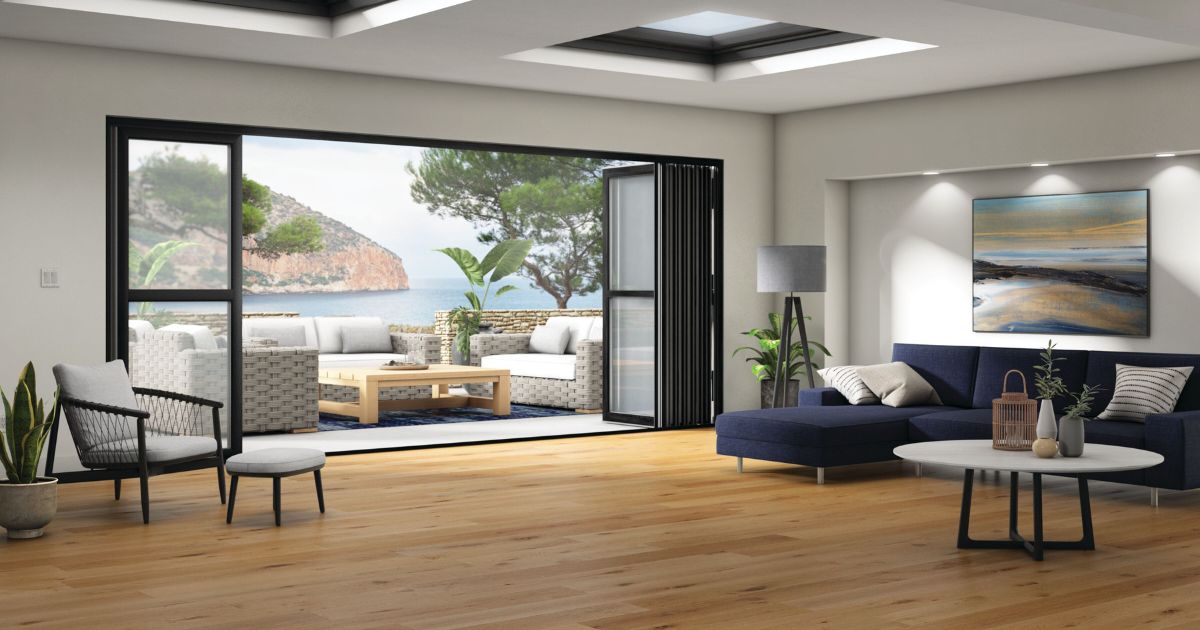 Explore the Glenmora engineered wood collection.
Explore the Glenmora engineered wood collection.
Goodman™ Engineered Hardwood
.jpg?lang=en-US) Explore the Goodman engineered hardwood collection.
Explore the Goodman engineered hardwood collection.
Connect With Us!
The flooring pros at all Crossville Studios locations can help you choose the right flooring for the performance you need. They will guide you through selection, design requirements, and every aesthetic consideration—as well as installation and long-term care of your new floors. Connect with us today!


